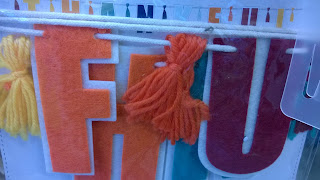Post-Craniotomy Shopping Tips: A Black Friday Miracle
 |
| While this sentiment can be helpful while shopping, I'm not sure it captures the spirit of Thanksgiving. |
Even three full weeks after surgery, stores stressed
me out. (I write this at the 3.5 week mark, and I haven’t been to a store since
the events I’m about to relate, so it’s possible that the stressing continues
beyond this point.) Since my release from the hospital, I’ve been to a wine
store (see the “Recovery Day One” post), various grocery stores, Costco, REI,
and Goodwill. Most of them, with one notable exception, left me feeling
frazzled and tired.
Grocery stores in particular are dizzying. There are
items vying for your attention everywhere, at eye-level and above. There are
shiny and reflective surfaces at all different angles that you have to
navigate. There are people rushing around you in unpredictable directions. It
sets a craniotomate’s heart a-flutter—and not in the good way.I managed all the stores without incident, mind you. I didn’t break anything or bump into people. But I had to focus myself (oooh, brain effort) to get what I needed out of the jumble of visual input. If we needed bananas, I would remind myself of where the produce department was located, walk a straight and determined path to produce, turn and scan the area in front of me for yellow fruit. No bananas? Turn head a few degrees, scan again. Still no? Pivot on the spot until bananas are located. Walk toward bananas.
And then Black Friday occurred.
Bargain hunting is in my blood. My mom, sisters, and I have been haunting secondhand stores ever since I can remember, not out of financial need but out of a sense that only chumps and fools paid full price at regular stores when items that are just as good, if not better, could be found at thrift shops for a fraction of the price (wool Armani trousers for $7! A full-length black leather coat for $10!). And there is also the thrill of the hunt—we are lionesses on the savannah, stalking our prey; not flabby lions getting our meat thrown to us by a zookeeper. So when my sister mentioned that Goodwill was having a 50% off sale on Black Friday, I was all up-ons, though I was a bit afraid that I wouldn’t last long due to stimulus overload.
What occurred was very enlightening, but before I get to that, here are some tips for craniotomates who plan to go on extended shopping trips:
1. If
you are shopping for clothes, wear an easy-on, easy-off craniotomy cap. Don’t
mess around with head scarves that need retying every time you try something
on.
2. Bring
your Tylenol with you. If you’re still taking Percocet or whatever narcotic
painkiller you’ve been prescribed, you’re not ready to go on an extended
shopping trip.
3. Wear
slip-on shoes. This is good advice for anyone planning to try on clothes, but
for craniotomates it has the added advantage of not having to bend over to
tie/untie your shoes – you should avoid bending over as much as possible. (I
couldn’t follow this advice because I was dealing with plantar fasciitis, so I only
had two pairs of shoes I could wear, both with laces.)
4. Bring
a snack. Your meds may cause you to have nasty blood sugar crashes, so if you’re
going to be out for a while, you’ll need to top yourself off. (I forgot to do
this because – if I haven’t mentioned this already – I’ve recently had brain
surgery and get distracted easily.)
5. Ideally,
you should go with someone who has veto power over your shopping decisions, or
at least will call your choices into question. Trust me on this: You are still
a bit dopey, in the sense that you are literally on drugs. Your brain tires
easily, and you don’t always make very good decisions, but you won’t realize
this until a day or week later. (I also did not follow this advice. Read on to
discover how it affected my shopping.)
So my sister and I arrived at the Goodwill in Plymouth,
Minnesota (the one in St. Paul has been converted into an “outlet” where they
send unsorted items down a conveyor belt every 15 minutes and you pay by the
pound – it’s kinda gross). Very quickly, I realized that this would be a
different shopping experience:
· Almost
all of the clothing racks were at the same height—slightly higher than
waist-level—so there were not so many things assaulting my visual field.
· Shoppers
at Goodwill do not rush about; they are hunters, and as such, they take their
time going through the racks.
· Unlike
regular clothing stores, Goodwill puts all
items of a certain clothing type in one area. For example, in a regular store,
if you are looking for a skirt, you must look in several different spots to see
all the skirts: the main brand or designer being promoted this season, another
rack with a different brand, the rack with sale items, the rack with clearance
items. At GW, all skirts or women’s long-sleeve tops or sweaters or jeans are
in one area. Easy-peasy.
I knew from my experience with grocery shopping that I
occasionally have difficulty making decisions—too many choices overwhelm me.
However, with secondhand clothes that need to be gone over one piece at a time,
it was easy to make a binary choice: Do I like this? Yes or no. I could do
that!Soon, I also realized that there is an advantage to having brain fatigue while clothes shopping: Any clothing item that forced me to think beyond just “Do I like it?” was an automatic no. Before surgery, I would’ve spent some time trying to figure out where those straps go or whether I could remove that tiny stain on the sleeve or what I would wear under that semi-transparent blouse. After surgery, I was all, “F-U, snap-crotch bodysuit! F-U, see-through hoodie thing! F-U, clothes that make me think too much!” That really simplified things.
Black Friday brings out the crowds even at Goodwill, so there were often long waits to get into the fitting rooms. (This GW, fortunately, did not have an item limit, so I brought in 15-25 items to try on at a time. It’s just more efficient if everyone does that, IMO.) Unless your Keppra experience makes you an impatient rage-beast (see post “A Smorgasbord of Side Effects”), waiting in line may actually be a soothing experience. I found that I valued the opportunity to stare blankly at the wall after looking at all those clothes and making all those yes-no decisions: “Ahhh, time for a brain break.”
I also appreciated my time in the fitting rooms, as I was able to remove my craniotomy cap. My easy-on/easy-off cap (see post “Who Wore It Best?”) is rather hot, so it was nice to take it off and air out my head for a bit. My decisions in the fitting room became slightly more complicated, but I still relied on a binary choice system: 1) Does it fit? No: Take it off. Yes: Next question. 2) Does it make me look fat? Yes: Take it off. No: Next question. [Note: No matter what your size, your clothes should never make you feel fat. If they do, you’re either wearing the wrong size or you’ve chosen a cut/style that does not suit you. You need different clothes.] 3) Do I look good in this? No: Take it off. Yes: Get it!
I was so pleased with how well this shopping trip went, especially considering that it lasted more than four hours! (I hadn’t done much if any clothes shopping since last year, so I was due for a wardrobe update.) Things started getting more difficult for me in the last hour or so, however, because I was hungry and, thanks to my meds, developed the hypoglycemic shakes & sweats. When I tire, my cognitive skills diminish rapidly:
· Though
I wasn’t done looking at clothes, I realized my sister was finishing up, so I dashed
over to the “junk” section (housewares & stuff). It was much harder going
through this section because the shelves went from the floor to above eye-level
and even though items are divided by type (baskets, dishes, holiday
decorations, etc.), there still was a visual jumble that made my eyes spin.
· The
book section was nigh impossible. You have to read the spines of the books to
see the titles, and my eyes and brain just couldn’t latch onto the barrage of sideways
letters to read them quickly enough.
· My
sister wanted to buy a multi-CD-changer so she could play her Christmas music,
which is all on CD. She called me over to help her decide between three. I
immediately felt the brain fuzz of decision overload but managed to say, “Sony
is probably the better brand.” She then pointed out that it was the most
expensive of the three, so price had to be considered. Then she showed me
various features of each machine. And then the input/output ports on the back. “Sony,”
I said again and then ran off down an aisle before she could ask me anymore
questions.
So far, I’ve made it seem like having a bit of brain
fatigue can be a good thing while shopping, right? It was—but only to a certain
extent. When you have brain fatigue, there are at least two problematic issues
that go along with the ease of making binary choices:
1. Your
impulse control will be dampened.
2. Any
decision that involves more than two factors (e.g., Does it fit? Does it look
good?) might overwhelm your reasoning ability, so you will make bad decisions. [This excellent Radio Lab episode—available
for free streaming—sheds some light onto how we make choices and the role of
brain fatigue.]
When I went to GW, I knew I wanted some trousers for
work, replacements for my warm- and cool-weather white cardigans, and some
sweaters. I bought 42 clothing items but no work trousers. I did, however, buy
39 tops including four—count ‘em—FOUR white cardigans. Nobody needs four white
cardigans.
How did that happen, you ask? Did I forget that I had
put one or two cardigans in my cart and then buy two more? Nope. I tried them
on one after the other. I just couldn’t decide between the light ¾-length
sleeve one versus the light long-sleeve one versus the lacy, jacket-y one
versus the heavier long-sleeve one. So I got them all. And somehow I got fixated
on cardigans because a third of what I brought home could be described as “cardigan”
or “cardigan-adjacent.”
Oy. At least they all look good on me.




Comments
Post a Comment